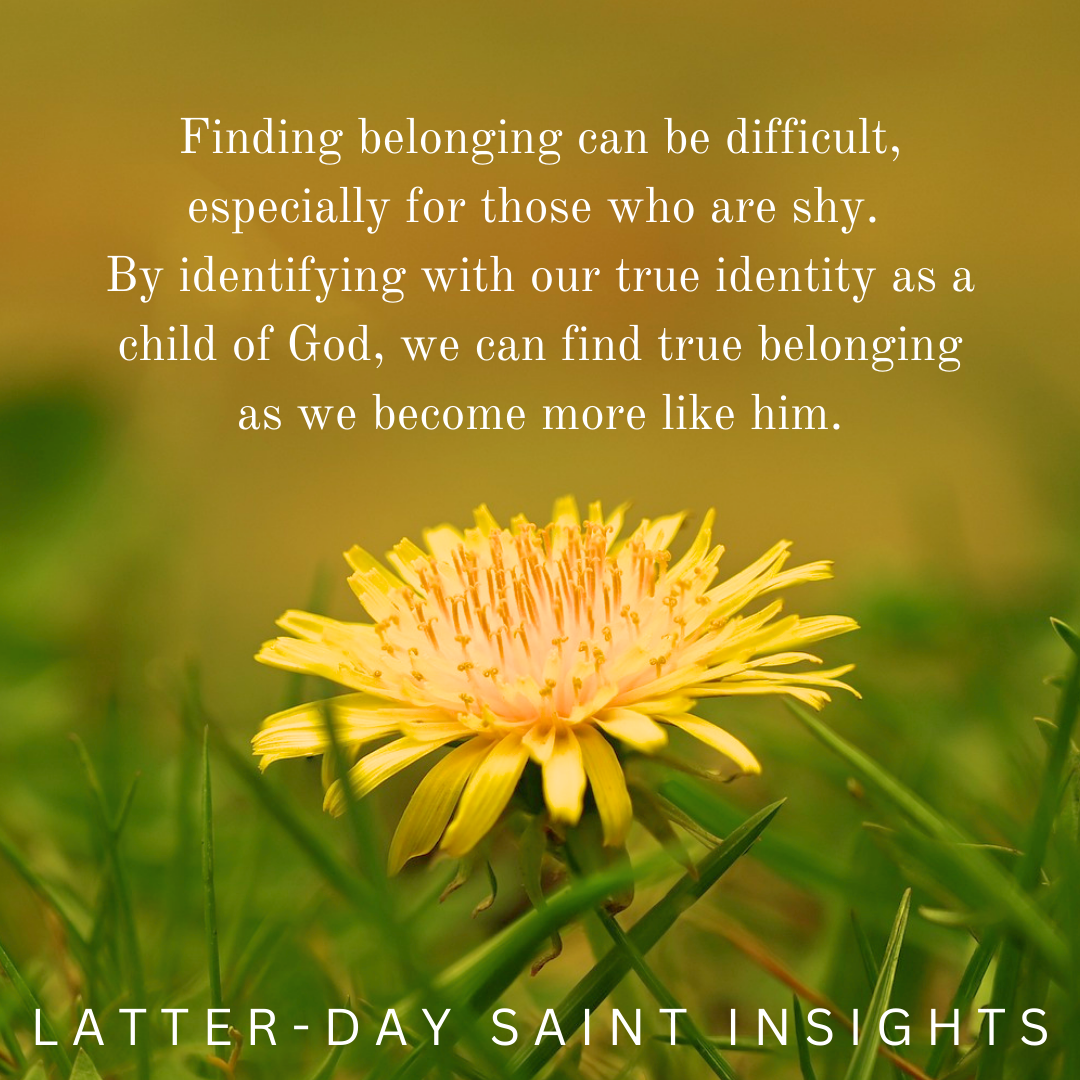Finding belonging can be difficult, especially for those who are shy. By identifying with our true identity as a child of God, we can find true belonging as we become more like him.
When my husband and I—both shy introverts—attended our first nonstudent ward for the first time as a married couple, no one spoke to us. We were college students and newly married, something this ward had seen a lot of. Instead of immediately being integrated into the ward, we were largely ignored. Though no one said it, we were in the ward but not of the ward—just migrant students that would come and go. The lack of belonging I felt at church quickly diminished my desire to attend, but I desperately wanted to maintain my connection to church.
In his article “How Divine Identity Affects Belonging and Becoming,” Elder John C. Pingree Jr. addresses this feeling of loneliness that many feel. He explains, “We receive labels from others and sometimes even assume them ourselves,” but “when we forget our core identity as God’s children, we can begin to fear, distrust, or feel superior to those different from us.” Getting past these labels and finding belonging can be difficult, especially for those who are shy. By identifying with our true identity as a child of God, we can find true belonging as we become more like him.

Photo by Erika Varga
Elder Pingree goes on to explain that as we truly understand who we are—children of a Heavenly Father who knows us individually and intimately—we can overcome the mortal differences that isolate us. We can instead see each other as we truly are: brothers and sisters trying to emulate the light of Jesus Christ.
As we know and connect with our divine identity as children of God, we connect with people in a deep and personal way. It enables us to find belonging not because we’re finally “fitting in,” but because we know who we are and others recognize the light in us. It allows us to focus ourselves more fully on Christ, becoming more like him and sharing the light we’ve found. As we find that we belong with our fellow brothers and sisters, we engage in the work of sharing that knowledge with others, and Elder Pingree says, “We do not just belong as members of a group; rather, we become real partners with God and His Son, Jesus Christ.” Our divine identity doesn’t merely allow us to fit in; it allows us to be more wholly united with our Heavenly Father.
Read the rest of Elder John C. Pingree Jr.’s Liahona article “How Divine Identity Affects Belonging and Becoming” to learn more about the impact of our divine identity on our belonging at church.
Source: Liahona
—Rachel Webb, Latter-day Saint Insights
FEATURE IMAGE BY MIRCEA PLOSCAR
Find more insights
To learn more about the power of knowing your divine identity, read or listen to President Russell M. Nelson’s worldwide devotional address “Choices for Eternity.”
Check out Alyssa Anderson’s Latter-day Saint Insights article “Creating a Community of Covenant-Keeping People” to learn about how our covenants can help us find belonging.


